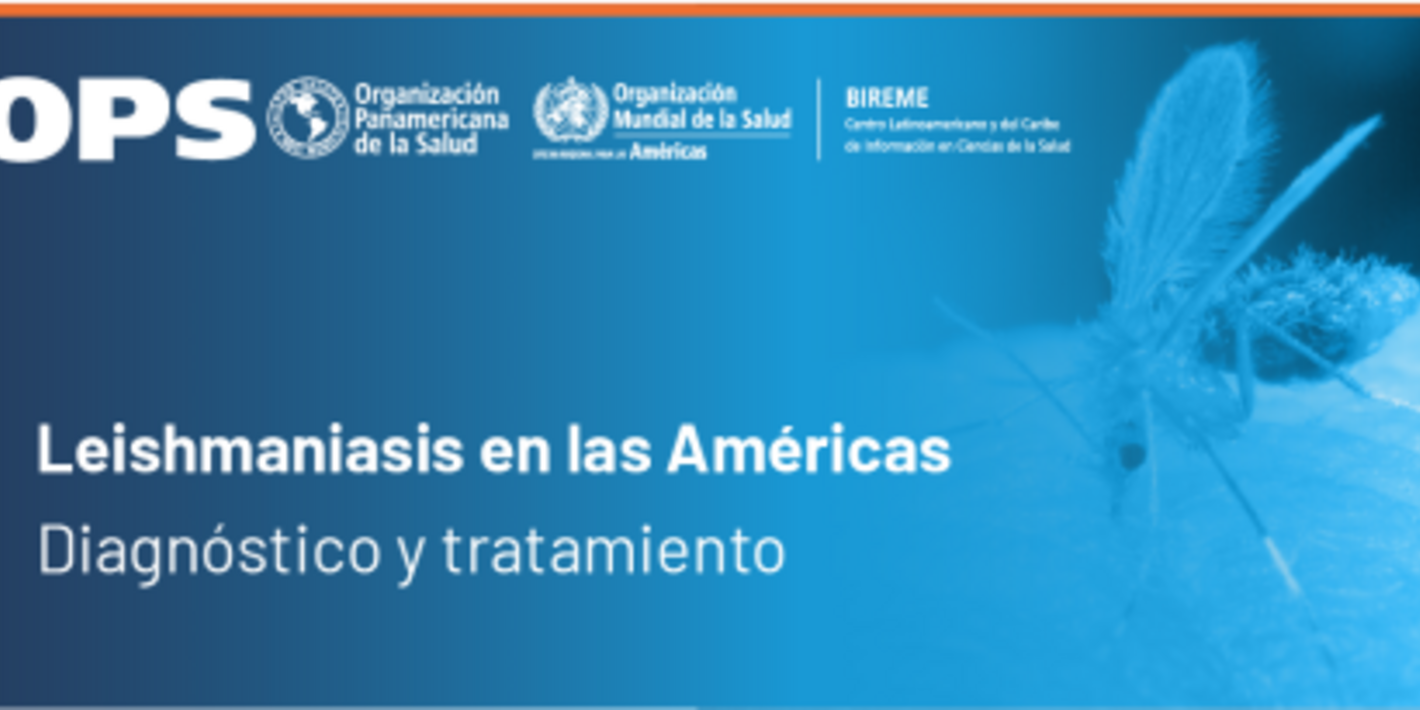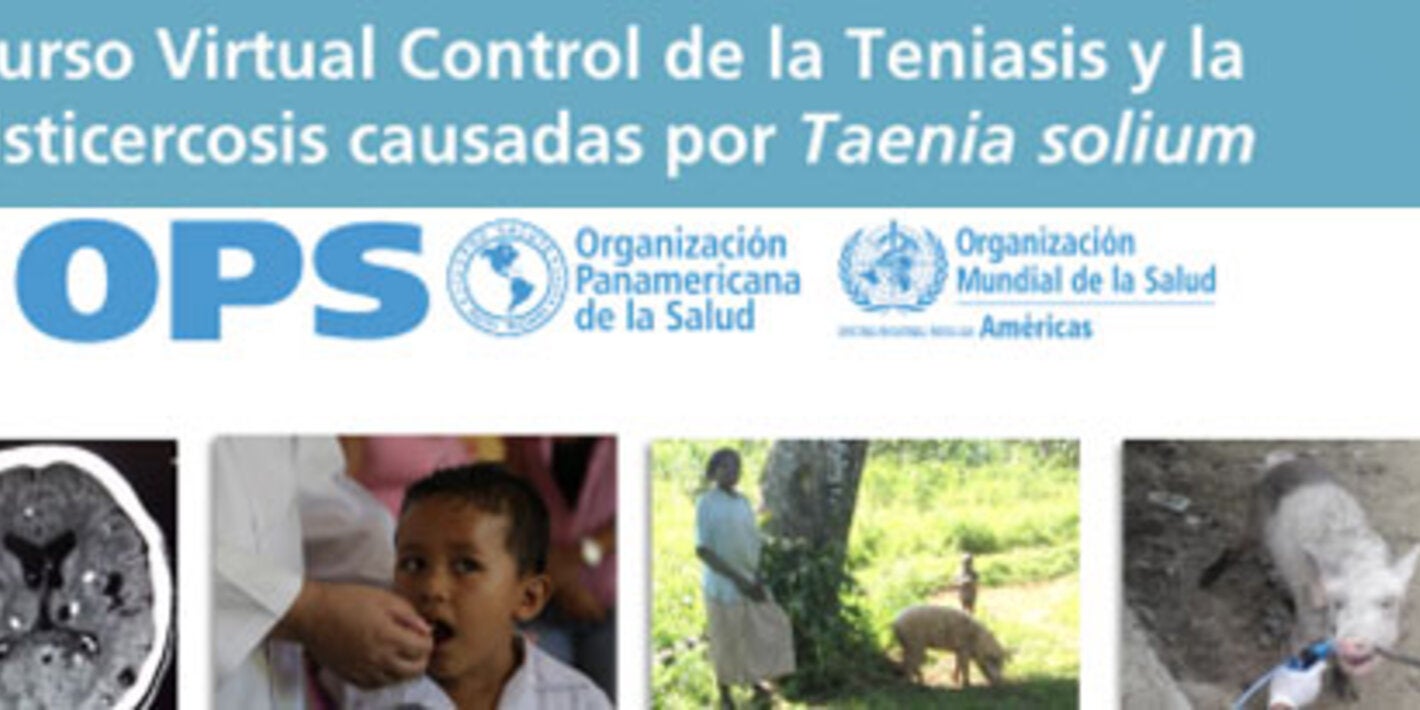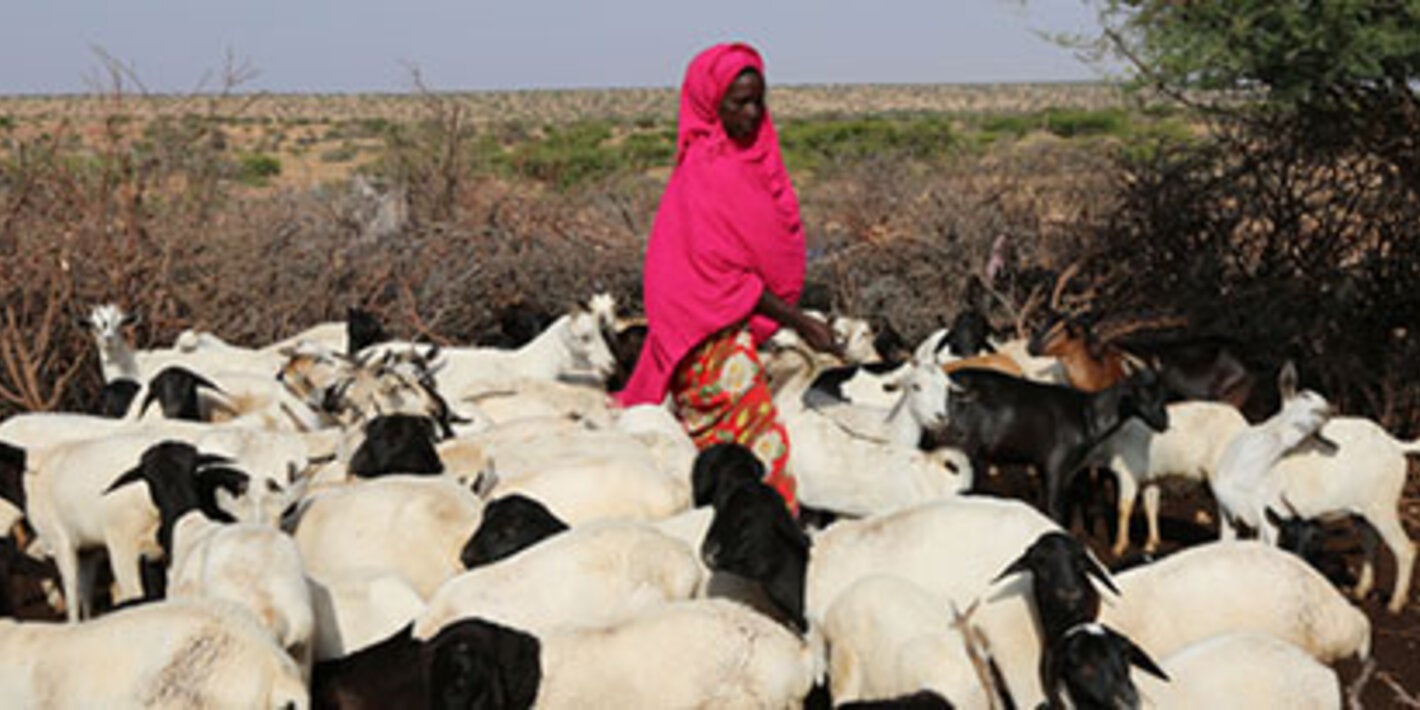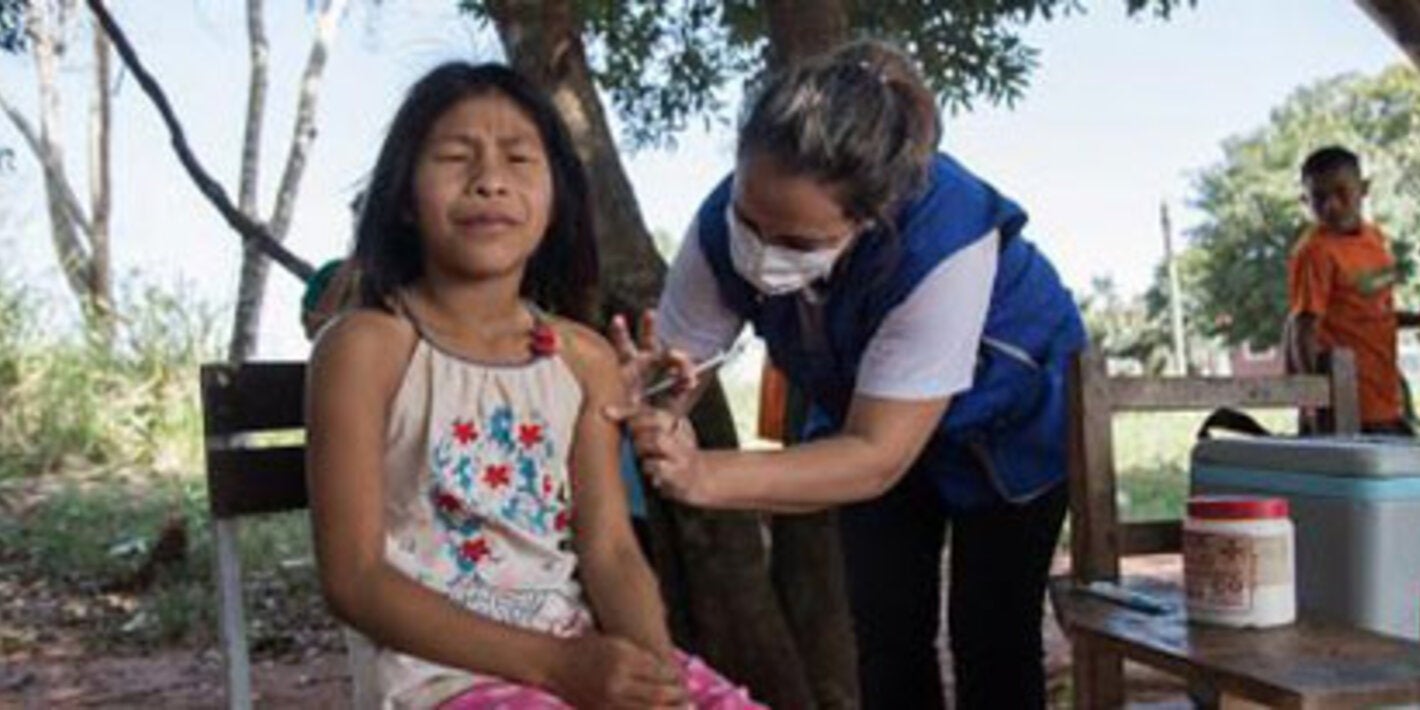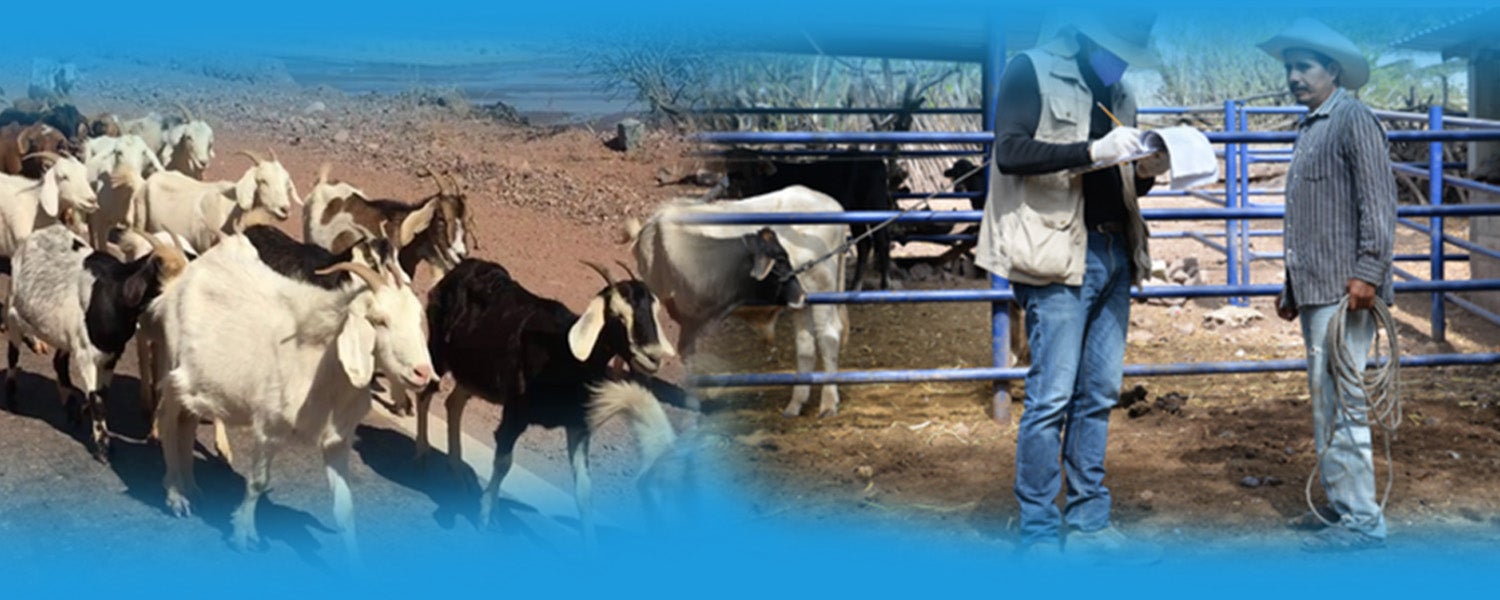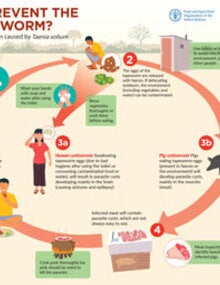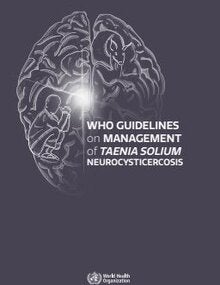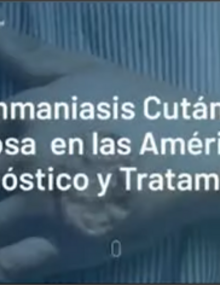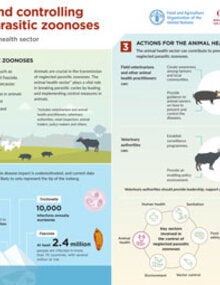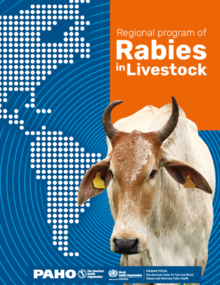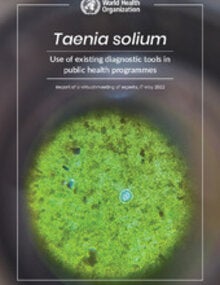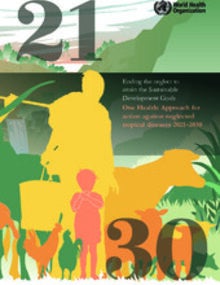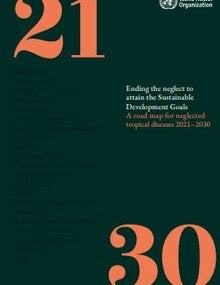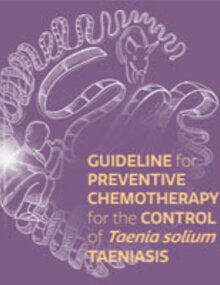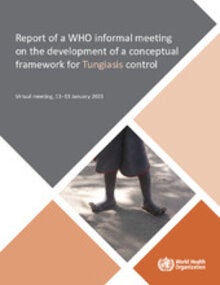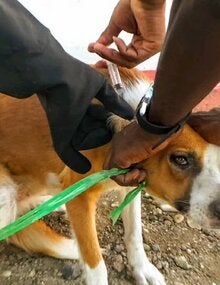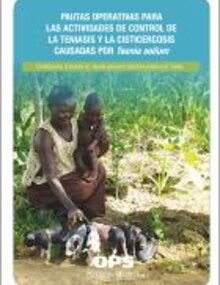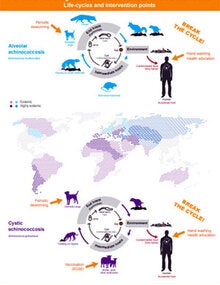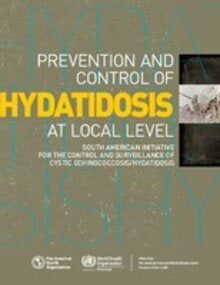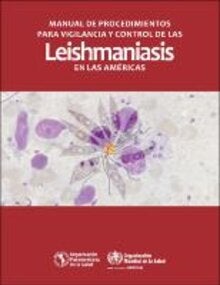ONE HEALTH - Action Track 3
Controlling and eliminating endemic zoonotic, neglected tropical and vector-borne diseases
Action track 3, “Controlling and eliminating endemic zoonotic, neglected tropical and vector-borne diseases,” focuses on the prevention, surveillance, control, and elimination of Neglected Infectious Diseases (NIDs). Since most of NIDs are zoonotic diseases, to tackle them, it is essential to promote the intersectoral coordination and integration of strategies and interventions within the human-animal-environmental interface, in line with the One Health approach, and ensuring efficiency, effectiveness and sustainability.
PAHO promotes the coordination and integration of strategies aimed at humans (diagnosis and early and adequate treatment), and vectors, including management of the environment to reduce its proliferation and interventions among animal reservoirs. Therefore, there are promoted and applied intersectoral and integrated actions to address all aspects of the neglected zoonotic tropical diseases (NTZD) in the endemic countries, which implies working on national and regional policies.
Technical cooperation and country experiences
- Technical cooperation carried out in Villamontes, Tarija, Bolivia, in response to an outbreak of visceral leishmaniasis. Where actions for human, vectors, and animal reservoirs, and environmental management were promoted.
- A meeting with experts was carried out in May 2022 to address the use of existing diagnostic tools in public health programs (targeted both human and animal reservoir.
- Development and maintenance of the Regional Information System for the Epidemiological Surveillance of Rabies (SIRVERA), 2023.
- Active participation in the One Health Congress approaching the theme from the perspective of Veterinary Public Health.
- Support implementation of fascioliasis study in the Northern Bolivian Altiplano human, with aim of: 1) Monitoring efficacy of the yearly campaigns of preventive chemotherapy against human fascioliasis; 2) Monitoring efficacy of triclabendazole for the treatment of human fascioliasis; 3) Monitoring STH situation and efficacy of previous mebendazole/albendazole campaigns of preventive chemotherapy.
Virtual trainings
Leishmaniasis in the Americas: Diagnosis and Treatment (only available in Spanish)
Zoonosis Virtual Seminar (Spanish only)
Good practices
- Promote the conformation of National Zoonosis committees, and periodic meetings where recent NTZD epidemiological situation can be shared and coordinated actions can be defined accordingly as to tackle NTZD.
- Support the coordination at national, subnational, and local levels, of national health professionals of different sectors (human, animal, and environmental) to define a coordinate response to NTDs.
- Development of technical documents and operational guidelines to tackle diseases with One Health approach which includes strategies towards the environment, vector control and animal reservoirs.
- Support the access to treatment products for the affected populations:
- Since 2022, a five-year agreement was signed between WHO and the pharmaceutical company Bayer for the donation of treatment of people exposed to or infected by the pork tapeworm Taenia solium. PAHO has worked in close collaboration with WHO to obtain data and interest from the countries to reinforce the agreement.
- An innovative treatment option based on the combination of dimeticones has been made available to Member States through the PAHO Strategic Fund to treat tungiasis.


